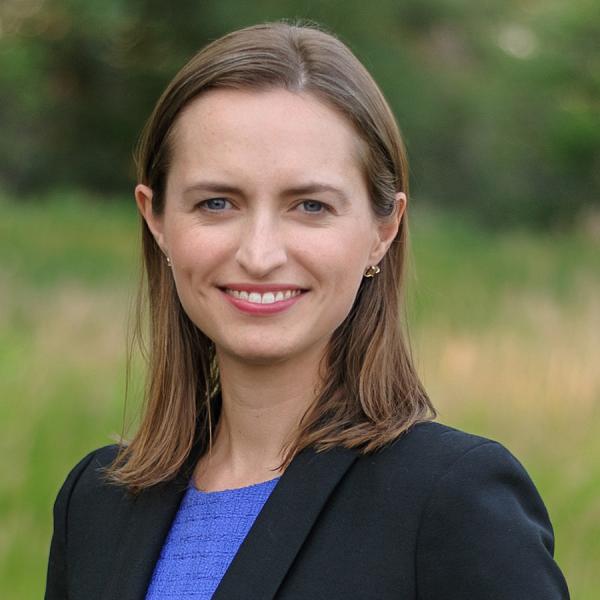Provider Group Addresses Specialty Care Shortages, Builds Colorado’s Safety Net

More than 4,000 Coloradans who didn’t have health insurance or who were enrolled in Health First Colorado, the state’s Medicaid program, were able to access specialty care between 2018 and 2021 as a result of the work of an innovative cohort of health organizations supported by Kaiser Permanente Colorado.
And patients of providers involved with the cohort waited less time for appointments with specialists like dermatologists, endocrinologists, and ophthalmologists.
But there is still serious work to do to ensure that people in Colorado with lower incomes have access to specialty care when they need it — including increasing the number of specialists who serve patients without commercial health insurance and expanding access to both in-person and virtual consults and visits.
Since 2018, the Colorado Health Institute (CHI) has been working with the Access to Specialty Care Engagement Network (ASCENT) cohort, which focused on health equity in specialty care. The cohort aimed to reduce barriers and improve the health of those in need by increasing access to specialty care for people who were uninsured or enrolled in Health First Colorado.
At CHI, we believe that building equitable, evidence-based health policy requires research and analysis in partnership with community leaders. So when the opportunity to convene and evaluate the impact of the ASCENT cohort arose, we jumped at the chance to learn from this group. The ASCENT cohort was comprised of health care providers and health alliances: Kaiser Permanente Colorado’s Safety Net Specialty Care Program, Hopelight Medical Clinic, Summit Community Care Clinic, the Boulder County Health Improvement Collaborative, and Mile High Health Alliance.
Our evaluation of the cohort’s work was published this week, and it highlights both the progress that was made over three years and important policy implications for improving access to care across the state.
Great Divides in Access to Specialty Care
When you need to see a medical specialist, the need is often urgent. A new mole might warrant a trip to the dermatologist; a hormonal challenge might require a timely visit to the endocrinologist.
But for many Coloradans, getting specialty care isn’t easy or fast. The median wait time for a specialty care appointment was 12 days in 2019, according to the Colorado Health Access Survey; that means some people waited significantly longer. Coloradans who are enrolled in Health First Colorado face additional challenges: In 2019 they were more than three times as likely as Coloradans with commercial insurance to report that they didn’t get care because a specialist did not accept their insurance.
Why is there such a divide in access to specialty care? Some specialties don’t have sufficient providers to meet the need in Colorado; in other cases, providers are reluctant to serve people enrolled in Medicaid because of their perception that these patients are more likely to miss visits or because of real or perceived challenges related to billing Medicaid. Care for people without insurance may be prohibitively expensive.
The COVID-19 pandemic has only exacerbated these challenges. For example, many patients were reluctant to get any medical care — including specialty care — during the pandemic unless absolutely necessary. And the economic downturn resulted in many patients losing access to insurance coverage.
The ASCENT cohort used a multipronged approach to try to address these gaps. The organizations facilitated e-consults (in which providers consult with one another virtually — a strategy that can allow patients to get access to specialists’ insight in a primary care setting); made referrals to specialty care; shared best practices across programs; and aimed to change the systems in which the programs operate.
We learned these tactics did make a difference. One provider shared the story of a man with a malignant carcinoma who was able to see a dermatologist and get a diagnosis and treatment for cancer because of the cohort’s efforts.
Most of the increase in access was the result of improvements within individual cohort member programs, not formal partnerships between cohort members. But the ASCENT cohort members jointly identified opportunities to improve the system as a whole, including advancing e-consults, strengthening and expanding referral systems, and growing the network of specialty care providers who accept Health First Colorado insurance.
Looking Forward to Improve Specialty Care
The cohort’s experience revealed lessons for others who care about improving access to specialty care.
Specialty care e-consults can improve access.
Policymakers should consider investing in e-consults to address specialty care needs in primary care settings whenever possible. Changes at all levels can help make this happen:
- Payers like Medicaid and commercial insurers should reimburse e-consult providers — both primary care and specialty care providers.
- Infrastructure leaders must invest in broadband to ensure rural care clinics can access specialty care providers across the state and nation.
- Both primary care and specialty care clinics should establish clear working agreements to share data and ensure streamlined referrals to face-to-face care when needed.
- When adopting new e-consult practices and technology, clinic leaders should carefully consider a clinical workflow integration strategy and leverage clinical champions to ensure streamlined adoption.
Face-to-face care still matters.
Addressing unmet demands for specialty care requires face-to-face care options for patients. Policymakers must invest in specialty care referral network infrastructure (such as referral coordinators in primary care environments) and growing the specialty care provider workforce — especially those who serve uninsured Coloradans and Health First Colorado members.
The safety net plays a critical role.
Policymakers must invest in the workforce serving the safety net — the medical providers and organizations who focus on providing care to those who are uninsured or insured by Health First Colorado or who are part of other underserved groups. One approach is for Health First Colorado to recruit more specialty care providers to accept that insurance. Cohort members reported significant challenges when connecting their Health First Colorado member patients with needed specialty care. Colorado’s leaders must also invest in the safety net services supporting Health First Colorado members and those without insurance.
What’s happening upstream affects access to care.
Coloradans who have historically faced barriers to accessing care — from food insecurity, to lack of stable housing, to gaps in child care — are also at risk of not getting needed specialty care. Addressing these gaps can also help increase access to specialty care services.
The last year has only deepened disparities in access to care that already existed before the pandemic. Strengthening the specialty care safety net is an essential step to bridging those gaps. But the ASCENT cohort’s work has helped clarify some key gaps – and illuminate some potential solutions.
Find more on the ASCENT cohort, its achievements, and policy implications in CHI’s final evaluation report here.

